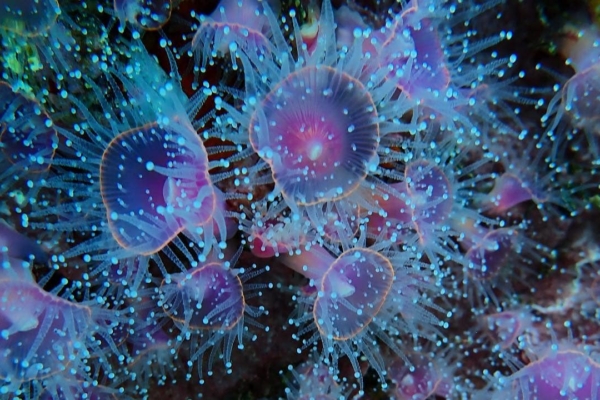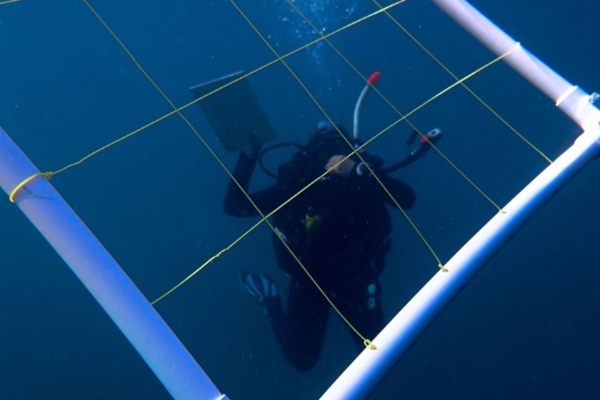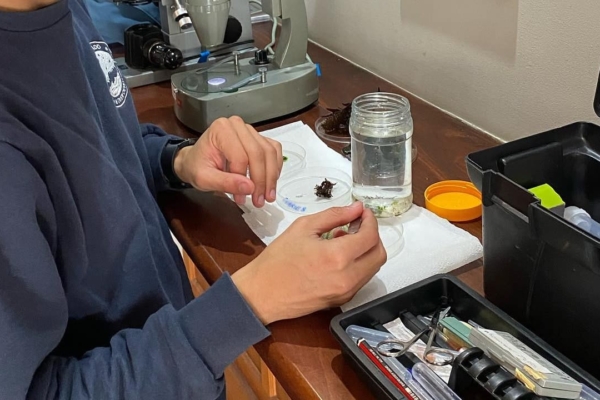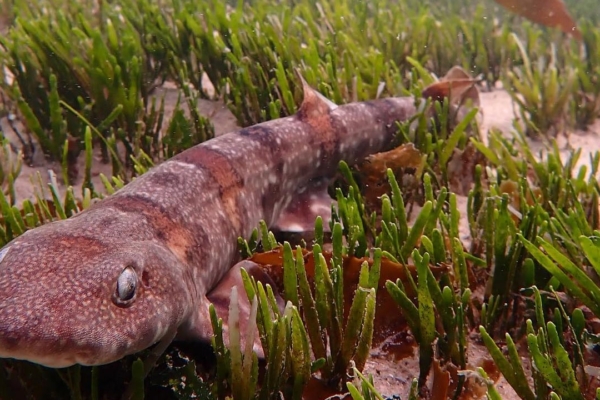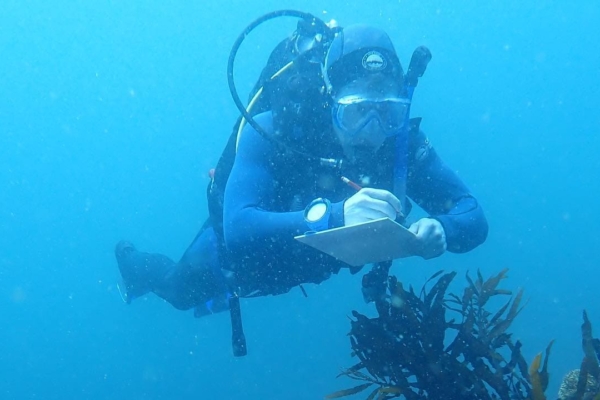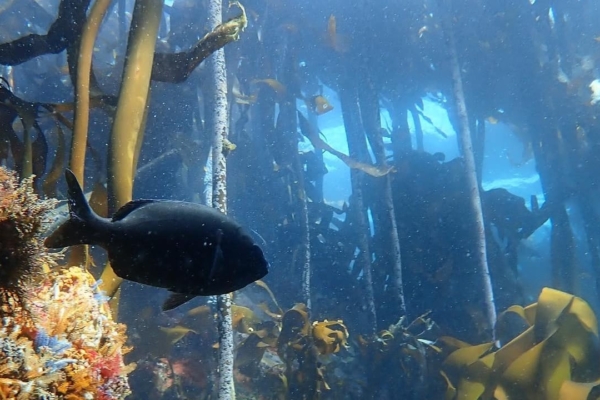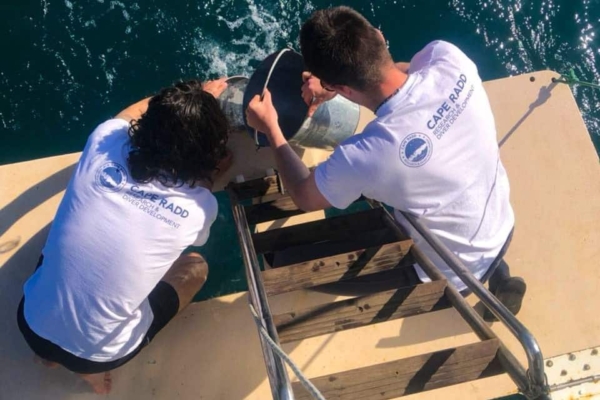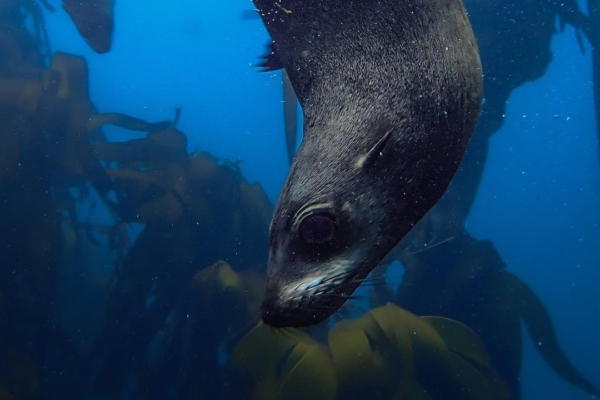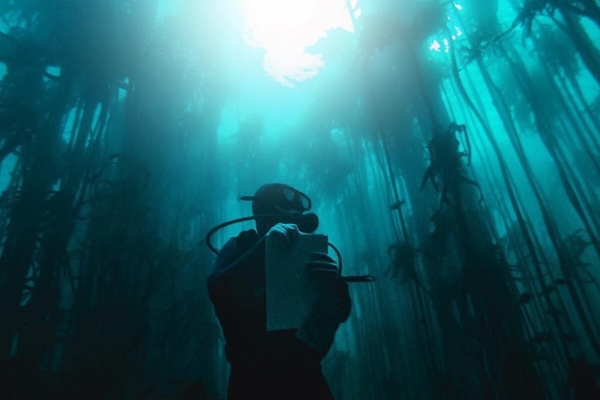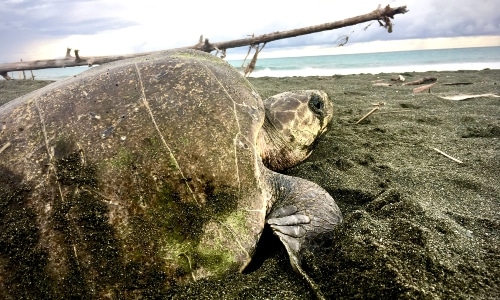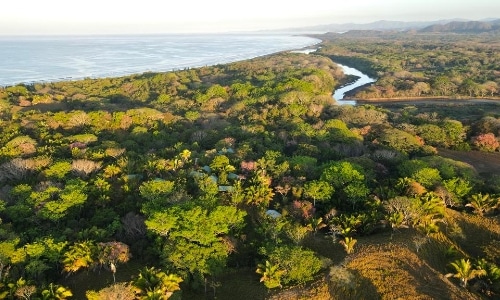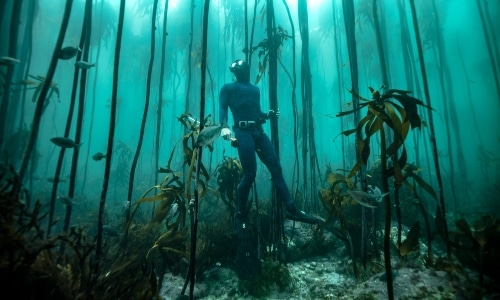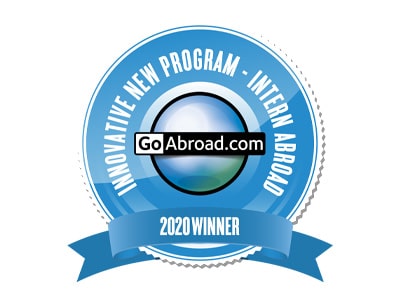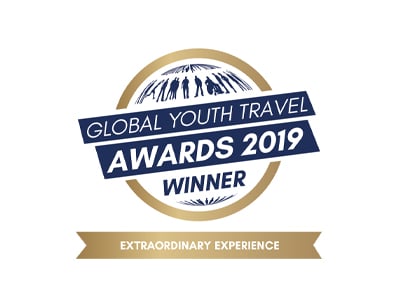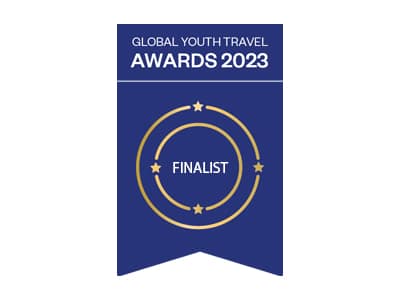MARINE SCIENCE FIELD RESEARCH INTERNSHIP IN SOUTH AFRICA
PROGRAM OVERVIEW
A comprehensive crash-course in Marine Science and Conservation
Investigate a career in marine science whilst gaining an expansive understanding of conservation through citizen science. This immersive educational program is designed to equip you with knowledge of an arsenal of research methods whilst providing hands-on experience in conservation and community outreach.
During this program you’ll work alongside a team of passionate marine scientists as you study and observe marine environments in order to develop and implement more effective means of their conservation. You’ll develop in-depth knowledge of marine ecology, biodiversity, species identification, data collection methods, and scientific research techniques. As well as this, you’ll be involved with a range of citizen science programs working to engage local communities in ocean conservation and bridging the gap between science and the public.
This program has a heavy focus on field work providing you with not only theoretical understanding but practical experience in real-world underwater research methods. You’ll regularly embark on underwater research dives collecting data on marine species and habitats to contribute to ongoing research projects. This will endow you with a comprehensive understanding of specialized marine research techniques and equipment such as underwater cameras, transect tapes, quadrats, and conducting underwater surveys and accurate data collection.
ORGANIZATION
This organization is a marine research center based in the idyllic Simon’s town situated along False Bay, South Africa. At the meeting point of two major ocean currents from the west and east, the Benguela and Agulhas currents, this well-known hotspot for biodiversity is a significant site for marine science research boasting a variety of shark, cetacean, seal and fish species. The organization runs a range of research programs aimed to better understand marine environments, then develop and promote more effective methods of their conservation.
This organization has a special focus on citizen science, utilizing public engagement as a means of mass data collection whilst widening outreach for conservation awareness. They also actively collaborate with local initiatives, NGOs, and government agencies in a range of research programs and conservation projects. On top of this, they are committed to training early-career scientists in marine research methods so as to empower the next generation of ocean conservationists.
TASKS & REQUIreMENTS
This program is designed to provide interns with a well-rounded understanding of marine research and conservation. Your first week is devoted to dive training and lectures introducing research methods. From then on, congruent with regular underwater research dives, you’ll spend time analyzing data collected from surveys, deploying and maintaining research equipment, and facilitating citizen science programs. You’ll need to be physically fit, familiar with scientific research and communication, and hungry to learn how to better protect our oceans.
Responsibilities
- Conduct regular underwater research dives
- Monitor populations of marine species and biodiversity of habitats
- Deploy and maintain marine research equipment such as underwater cameras, transect tapes, quadrats
- Analyze data gathered from underwater surveys
- Assisting with dives and instructing participants in citizen science programs
- Write up reports on findings
- Create content for blogs, social media, and other online channels
- There’s also the option to continue on for another 1-2 months as a Marine Research Assistant Internship for those interested
Training and lectures during the internship:
- An introduction to the area, substrates, fish and invertebrate species, and the systems and processes that create the unique biodiversity found in the Cape Peninsula
- Project background and research methods used
- Scientific diving
- Biodiversity
- Use of R
- Baited remote underwater video (BRUV)
- Additional skills like GIS and Freediving
Requirements
- No experience or qualifications required, but you need to have an interest in Marine Sciences, Oceanography or related subjects OR Dive Professionals (Dive Master, Dive Instructor).
- Minimum Open Water certification (PADI, NAUI, SSI, BSAC, etc.). If you need to get your certification, please contact us for additional information about a diving course.
- Written and verbal communication skills
- An analytical mind and close attention to detail
- Willingness and ability to interact with and instruct citizen science participants
WHERE YOU’LL STAY
Accommodation is arranged on a case-by-case basis with interns staying in local rental properties within walking distance from the research center. At the center, you’ll have access to study spaces, diving equipment, and a well-stocked bar. In your downtime, you can enjoy a choice of delightful restaurants and bars in the area, embark on hikes around the attractive surroundings, or make the short trip to one of the most thrilling cities in the world, Cape Town.
Safety & Support
Safety & Support
Make sure to visit your doctor and dentist for a check-up before yor internship and to get all the recommended vaccines and/or medications necessary to stay healthy. You are not located in a malaria risk area, so the people who live here do not take malaria medication.
Communication
Communication
There is internet access at the accommodation, but we also suggest acquiring a local mobile SIM from one of South African providers (Vodacom, MTN, Cell C, Telkom and Virgin), which are inexpensive and will make it easier to communication with your team members. For this, your phone must be unlocked for international use. You can use your own SIM if your network allow international use, however this can be costly.
Meals
Meals
Accommodation is self-catered and you will have a student shared kitchen with everything you need to prepare your own meals. You will be taken to the local grocery store whenever you need to get supplies.
Location details
Location details
You’ll be situated in the quaint town of Simon’s Town in False Bay, South Africa. This small suburb on the outskirts of greater Cape Town is nestled in a stunning area boasting exquisite beaches, incredible marine life, and mountainous surroundings. Based on a peninsula that splits the Atlantic and Indian Oceans, the water sees a spectacularly diverse range of marine life with a multitude of shark, cetacean, seal and fish species, as well as kelp forests and natural reef systems. Here you’ll find an exciting array of marine environments to explore and study during your internship.
DATES & RATES
Fee Breakdown
The program starts every first Monday of the month between February and November. So this internship is NOT in December and January.
What you’ll pay (2025 rates)
2 weeks USD 2,750
3 weeks USD 3,520
4 weeks USD 4,620
Inclusions
- Careful matchmaking. It takes time to find the right internship for each person, and we take this process very seriously.
- Initial interview with one of our team to gauge your skills, interests, and desired learning outcomes.
- An academic internship eligible for university credit. Check with your university to confirm if this internship qualifies for credit or alternatively we can assist you with purchasing transfer credits.
- Shared accommodation in Simon’s Town
- Airport transfers upon arrival and departure
- Transport between your accommodation and the headquarters
- Diving and equipment rental
- Marine protected area permits
- Assistance with your visa arrangement and other preparations
- Supervision and support during your stay
- Regular check-ins during your internship with your supervisor
- Troubleshooting if needed
- A reference letter at the end of your internship
- A discount on weekend activities, exclusive to Roots Interns
Exclusions
- Flights to Cape Town International Airport
- Visa and medical/travel insurance costs for the duration of your placement – must include cover for scuba diving and repatriation
- Meals, drinks, snacks, and items of personal nature (f.e. curios, gifts, clothing)
- Costs for additional excursions or activities
GALLERY
FAQs
Some of our most commonly asked questions for programs in South Africa.
What can I expect from a NGO internship in South Africa?
During your internship in South Africa you can expect to meet people from around the world, as well as indulging yourself into the culture of this beautiful country! If you want to know more about what to expect, make sure to check out our top 7 reasons for an internship in Cape Town.
Will I have time to explore South Africa during my internship?
Yes! We partner with various activity organizers that can offer discounts exclusive to Roots Interns, for example, a road trip through the Garden Route and bungee jumping off the world’s largest natural bungee. You may also explore the country on your own and we are happy to give recommendations.
Am I able to do an internship while on a study program in Cape Town?
Yes! You are able to do a part-time internship with certain organizations so that you can continue your studies, while also gaining valuable work experience.
Will I receive a stipend of any kind during my internship with Roots?
Unfortunately, no. When working with a nonprofit organization, your internship will be unpaid, but there are many ways to fund your internship. Your experience will bring a wealth of knowledge and opportunities for both professional and personal growth that are invaluable!
QUICK FACTS
HIGHLIGHTS
- Gain international work experience in a marine conservation context
- Develop theoretical and practical understanding of marine science research
- Build an expansive understanding of marine conservation and citizen science
- Work alongside a team of passionate, experienced marine scientists
- Live and work in in the greater Cape Town area
HOW TO APPLY
If you’re ready to apply for this internship, here’s what to do:
APPLY
Fill in the application form (it will show in a new screen) which includes sharing your CV to us.
SPEAK WITH AN ADVISOR
We’ll set up a call with you to go through your application.
INTERNSHIP MATCHING
If we feel it’s a good match, we’ll set up a call between you and the supervisor for this internship.
PAYMENT
If everyone’s happy, we’ll provisionally confirm your placement! We’ll then send you the invoice for the deposit, getting started with the booking process and all the info you need.
CONFIRMATION
Only once we receive payment of the deposit your placement will be confirmed.
NEED TO MAKE AN ENQUIRY FIRST?
Or if you’d just like to ask us some questions about this internship first, just fill in the contact form below. We’ll be happy to assist!
"*" indicates required fields
RELATED PROGRAMS
Sea Turtle Conservation Internship
- Min. 6 weeks
- Carate, Costa Rica
- Data Collection, Marine Conservation, Education, Research
Conservation Research Internship
- Min. 8 weeks
- Manzanillo, Costa Rica
- Data Capture, Permaculture, Conservation, Education, Monitoring, Research
Marine Science Field Research Internship
- 2-4 weeks
- Simon's Town, South Africa
- Conservation Work, Research Dives, Data Collection
RELATED BLOGS
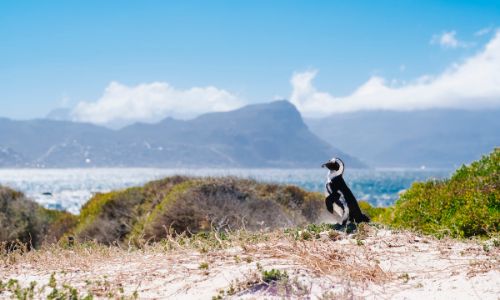 8 Reasons to do a Marine Conservation Internship
8 Reasons to do a Marine Conservation Internship
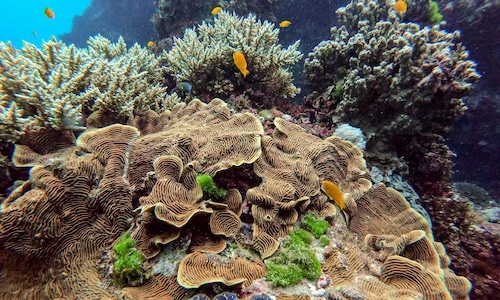 Best Marine Internships for 2024
Best Marine Internships for 2024

